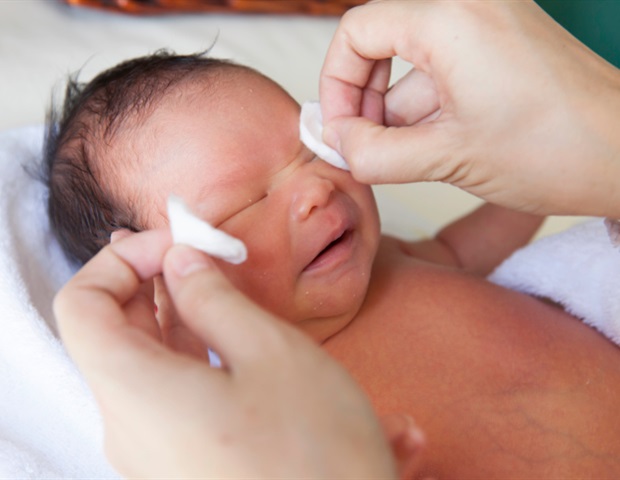
A brand new AI-based software program has been developed that may be built-in with an ultrasound machine to ‘information’ childbirth by offering exact, real-time data on the newborn’s head place. It may well clearly point out to operators-;utilizing a site visitors mild system-;whether or not to proceed with a pure descent within the start canal, whether or not to make use of a vacuum extractor, or even when an emergency cesarean is required.
This instrument, which may very well be accessible in supply rooms beginning in 2028, was developed and validated as a part of a research printed in The European Journal of Obstetrics & Gynecology and Reproductive Biology and coordinated by Professor Tullio Ghi, who’s now full professor of Gynecology and Obstetrics on the Catholic College of Rome and Director of the Obstetrics Unit on the Fondazione Policlinico Universitario Agostino Gemelli IRCCS in Rome. The undertaking acquired technical assist from the Medical Physiology Institute of the Italian Nationwide Analysis Council (CNR) in Lecce and colleagues from the Obstetrics Clinic on the College of Parma. The multicenter research was performed as a part of the ISLANDS worldwide research group (Worldwide Research Group on Labor and Supply Sonography), based by Prof. Ghi, and can now proceed with a brand new potential research chosen by the Italian Ministry of Well being amongst nationally important initiatives (PRIN), funded with roughly 200,000 euros.
The journey of the fetus via the start canal might be fraught with obstacles and dangers. Fetal malposition-;a situation the place the fetus’s occiput is oriented towards the sacrum quite than the mom’s pubic bone-;is among the many commonest causes of extended or halted labor development. Relying on how the newborn’s head is positioned throughout descent, it could be mandatory to make use of a vacuum extractor to facilitate supply or, in tougher circumstances, to resort to an emergency cesarean to make sure a secure supply for each mom and little one.
Assessing the newborn’s head place might be difficult, even for skilled practitioners, Professor Ghi explains. When practitioners make evaluations through the use of palms, there’s a one-in-five probability of error, which might result in incorrect placement of the vacuum extractor, leading to failed extraction, extended labor, and, within the worst circumstances, delayed supply of a child in misery. Ultrasound helps docs precisely assess head place earlier than utilizing a vacuum extractor, however not all supply room operators are ready to make use of ultrasound successfully to acquire exact data.
The AI-based software program makes use of ultrasound photographs to offer exact, real-time responses to operators, displaying the ‘verdict’ as a site visitors mild: purple if it’s not applicable to proceed with the vacuum and an emergency cesarean needs to be thought-about; inexperienced whether it is secure to proceed with the vacuum; and yellow if the scenario is unsure.
Within the multicenter research, the software program has been validated to this point utilizing 2,154 ultrasound photographs from 16 facilities worldwide. The general efficiency of the mannequin in classifying fetal head place was glorious, Professor Ghi says, with an general accuracy of 94.5% and a sensitivity of 95.6% (capacity to detect head malposition).
Now we have developed an AI mannequin utilized to ultrasound that may mechanically assess fetal head place throughout childbirth inside a fraction of a second, with glorious general accuracy”.
Professor Tullio Ghi, full professor of Gynecology and Obstetrics on the Catholic College of Rome and Director of the Obstetrics Unit on the Fondazione Policlinico Universitario Agostino Gemelli IRCCS
“In future we’ll validate our mannequin on massive affected person populations earlier than it may be launched into routine medical apply, however we imagine that if outcomes stay optimistic, the software program might grow to be a part of medical apply inside 3-4 years,” he concludes.
Supply:
Journal reference:
Zegarra, R. R., et al. (2024). A deep studying method to determine the fetal head place utilizing transperineal ultrasound throughout labor. European Journal of Obstetrics & Gynecology and Reproductive Biology. doi.org/10.1016/j.ejogrb.2024.08.012.

